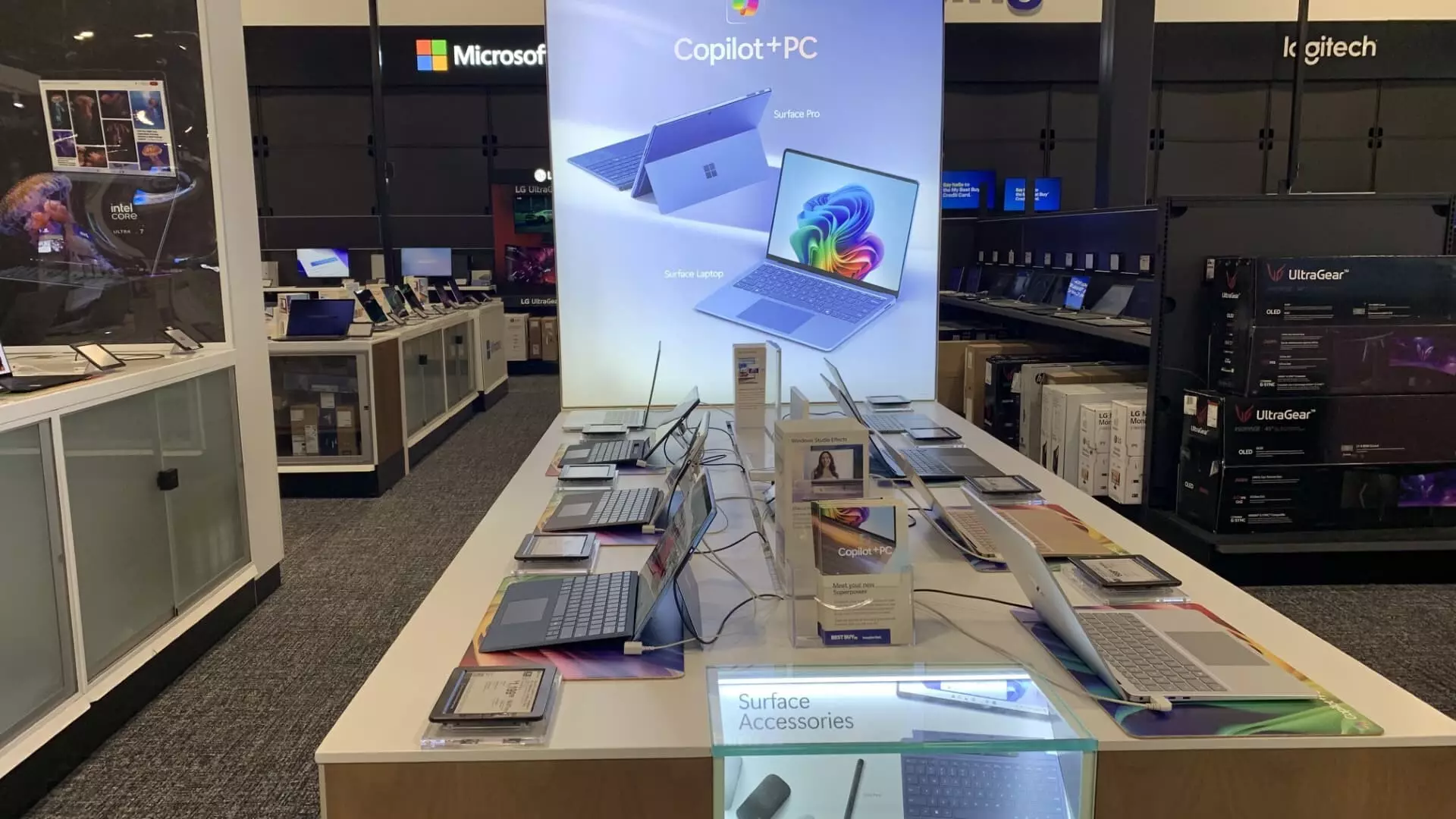In a rapidly changing retail landscape, the recent decision to sell 165 shares of Best Buy Inc. at approximately $86 per share highlights a significant strategic adjustment within the investment portfolio of Jim Cramer’s Charitable Trust. Following this transaction, the Trust will retain 600 shares of Best Buy, effectively reducing its weighting of this stock from 1.9% to about 1.5%. This maneuver exemplifies the tactical shifts that investors are compelled to make in response to evolving market conditions.
Best Buy has encountered a consistent decline in share prices since October, fueled by apprehensions about electronic retail sales, coupled with fears regarding potential increases in tariffs on imported goods from China. The anticipated trade policies of the incoming administration led by President-elect Donald Trump have heightened uncertainties within the sector. Besides these economic factors, Best Buy’s business model is also contingent upon housing market activity. An increase in housing turnover is crucial for driving sales in high-value segments, including appliances and home entertainment systems. Thus, any stagnation in the real estate sector spells caution for Best Buy’s financial trajectory.
The recent spike in mortgage rates, despite the Federal Reserve’s decision to lower interest rates, has further complicated the landscape for retailers like Best Buy. The Trust’s decision to liquidate part of its holding when Best Buy shares reached around $90 in late October serves as a preemptive strike against diminishing profits. The rationale, however, extends beyond mere market speculation; it embodies a disciplined investment philosophy aimed at preserving gains in a volatile environment.
There’s a palpable sense of discipline reflected in the decision to sell. The Trust’s strategy is clear: safeguarding profits is paramount. While challenges such as sluggish mortgage performance and a temporary dip in sales of personal computers attributed to artificial intelligence innovations create turbulence, it’s essential to evaluate the long-term prospects without risking immediate gains. The upcoming earnings report poses a threat that the recent inflection towards stable same-store sales may falter. In such a scenario, the Trust’s proactive moves can prevent a hard-won gain from morphing into a loss.
The broader retail earnings season has illuminated some striking trends. Major players such as Walmart, Amazon, and Costco continue to dominate, capturing increased market share while competitors like Target find themselves grappling with significant profit misses, leading to notable declines in stock value. This paradigm shift underscores the importance of adaptability in the retail sector; established brands benefit from scale and consumer trust that can overshadow competitors like Best Buy.
Best Buy’s predicament in electronics retail is intensified by the presence of these giants. The competition is more than mere price wars; it encompasses brand loyalty, market reach, and the ability to innovate alongside shifting consumer preferences. The Trust’s diversified portfolio, which includes stakes in leading competitors such as Amazon and Costco, reflects an astute awareness of these dynamics. The retail landscape, unforgiving and competitive, requires constant vigilance and strategic agility.
As the investment community looks forward, the careful trimming of Best Buy shares reveals a broader commentary on the nature of retail investments amid economic unpredictability. Investor discipline, grounded in the principle of cashing in on profitable positions while circumventing potential pitfalls, is essential in volatile markets. The prospects for Best Buy hinge on external factors—housing developments and macroeconomic conditions—but proactive management of portfolio weightings can mitigate risks associated with the inherent uncertainties inherent in electronic retail.
The Retail sector is poised for ongoing evolution. The diverse performance experiences of various brands underline the necessity for agility. For investors following Cramer’s strategy, being informed and prepared is key to navigating the complexities of the investment landscape. As we continue to analyze retail shifts, it remains crucial to embrace discipline in decision-making, grounded in market realities and forward-looking assessments.

